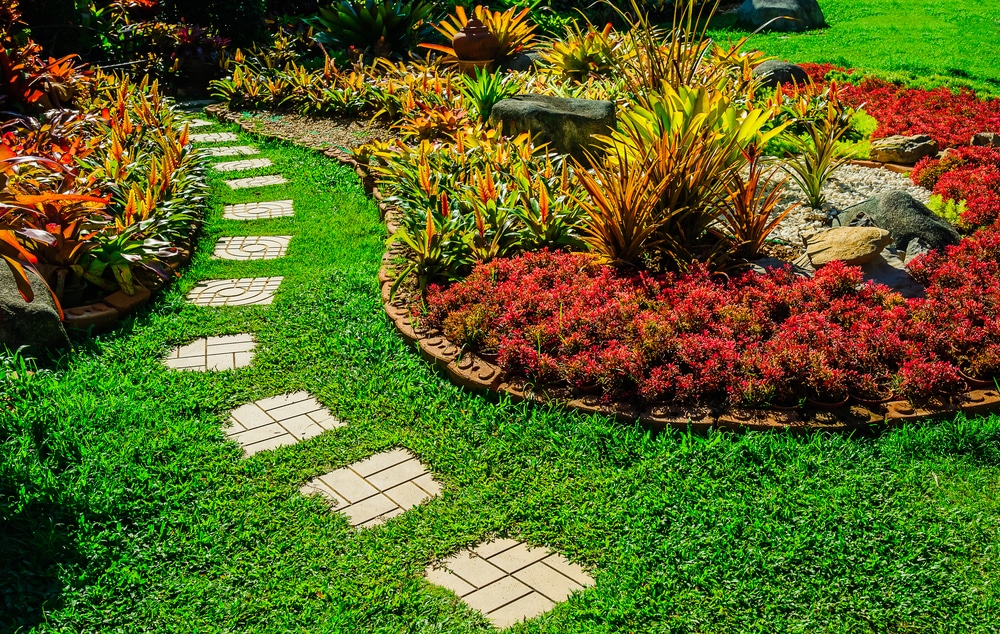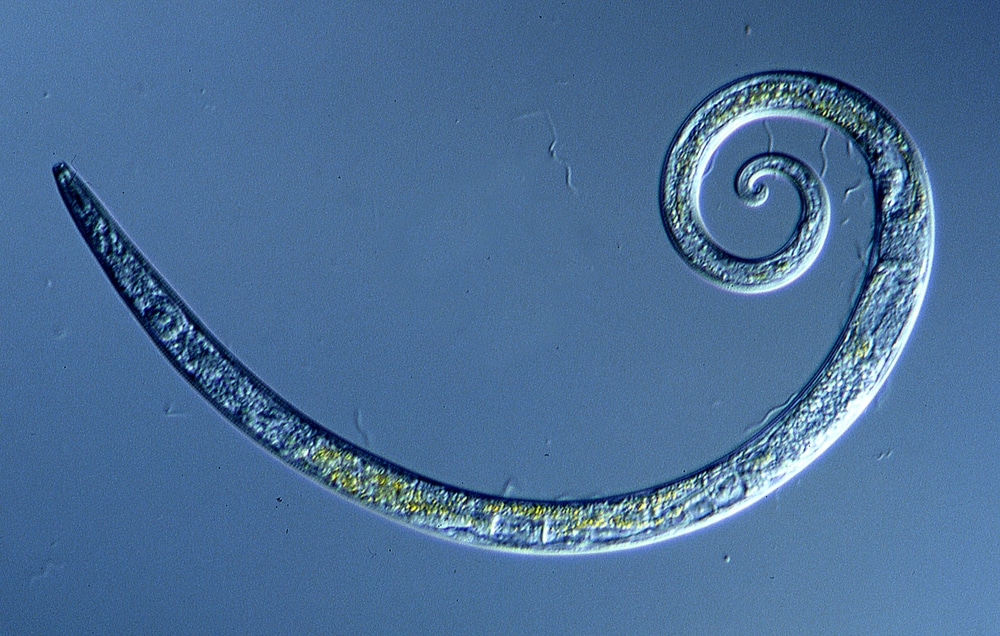Summary
Nematodes live in your soil. You’re unlikely to notice them without a microscope because most are no more than 2.5 millimeters (0.09 inches) long. Other identifying factors include them resembling worms, being transparent or somewhat transparent, and being a little white in color.
Nematodes are in your soil because they’re consuming dead organic matter, bacteria, fungi, and pests. Unfortunately, some nematodes also consume plant roots. Others can use humans (and other animals) as hosts.
However, most nematodes are beneficial to soil and your plants. But if you need to treat them, we recommend consulting with a local professional for help. You can also take steps such as crop rotation, growing biofumigant plants, and adding compost.
Identifying
You are unlikely to identify nematodes in your soil. The reason is due to how small they are. Generally, they’re no more than 2.5 millimeters (0.09 inches) in length (although some can be larger).
For reference, a pencil tip is 1 millimeter in length. So, you’d be looking for an organism no more than 2 and 1/2 pencil tips in length.
Certainly, you could do that, either on your own or with a microscope. However, you may find it a frustrating endeavor.
If you do decide to look, here are some identifying factors to help:
- A worm-like body
- They wriggle
- Transparent or partially transparent
- Somewhat white in color
Additionally, if nematodes are causing adverse issues for your garden (explained more below), you’ll notice unhealthy signs in your plants, such as them turning yellow.
Causes (Why They’re There)
Nematodes are in your soil whether you notice them or not.
They’re there to consume. The question is, what are they consuming? That depends on the nematodes, which are a diverse group of organisms.
For reference, depending on the nematode, they can consume the following things:
- Bacteria
- Fungi
- Dead organic matter
Additionally, some nematode species are parasites. Depending on the species, they can prey on dogs, pigs, and even humans. However, these are not usually the nematodes living in soil.
Benefits
The nematodes in your soil provide several benefits. These include:
- Preying on bacteria, fungus, and pests
- Breaking down dead organic matter
- Providing nutrients to your plants
Let’s start with the first one.
Preying On Bacteria, Fungus, And Pests
It’s worth mentioning again that nematodes are a diverse group of organisms. Due to this diversity, they consume a diverse group of things as well, both living and dead.
Their consumption of these things regulates what’s in your soil. This helps keep populations of fungi, bacteria, and pests in check and your plants healthy.
Breaking Down Dead Organic Matter
Like pot worms, fungus gnats, and other detritivores, nematodes consume dead organic matter. This keeps in check how much dead organic matter is around. Otherwise, you’d be dealing with a lot more dead plants.
Providing Nutrients To Your Plants
As nematodes consume, they process what they’re consuming and transform it into nutrients your plants need to be healthy and grow. Without them, that’s one less way for your plants to get those nutrients.
Problems
Unfortunately, not all nematodes are beneficial, nor is everything nematodes do beneficial either.
Some problems they can cause include:
- Damaging your plants
- Causing crop loss
- Infecting humans
Let’s start with damaging your plants.
Damaging Your Plants
Some nematode species feed on roots. This can harm your plants over enough time or with enough nematodes doing it.
Causing Crop Loss
Nematodes have a reputation for causing crop loss. This reputation is earned, too, because they can and do affect crop yields, which also causes monetary loss.
However, it’s important to remember that only some cause these issues. As you’ll see below in the “Treating” section, the issues these nematodes cause are not a reason to use pesticides. These cause more harm than good.
Infecting Humans
Some species of nematodes are parasites, meaning they feed off a host. Unfortunately for us, this can include humans. Although it’s essential to mention that just as with only some nematodes causing crop loss, it’s also only some that use humans as hosts.
However, while they aren’t typically present in soil, they can be. So, we recommend always using proper safety gear, such as gloves, to be safe.
Is It Good For Your Lawn And Garden?

For the most part, nematodes are good for your lawn and garden.
Too many can be a bad thing.
However, most help balance bacterial, fungal, and pest levels, and they provide nutrients to your plants to help them grow and be healthy.
Attracting
You don’t need to do anything to attract nematodes. It is highly likely they’re already in your soil, doing what they do as part of your soil’s ecosystem.
Support And Care
You don’t need to do anything other than what you’re already doing for your garden. Nematodes can and do take care of themselves. If conditions aren’t right, they’ll move elsewhere.
Treating
You have a few ways to treat nematodes without chemicals. Some are practices you are hopefully already doing or will do soon.
The first is crop rotation.
Crop rotation is already beneficial for your crops and soil. An additional benefit is that some crops, such as corn and asparagus, are nematode-resistant, effectively reducing their population.
The second is growing plants that naturally suppress these creatures. One such plant is the marigold. These plants are natural fumigators (called biofumigants), and they release substances into the soil that control populations of nematodes and other organisms.
The third is to add compost to your soil if you aren’t already. Doing so helps increase populations of nematodes that consume nematodes that consume plant roots.
Preventing
It’s very difficult to prevent nematodes in your soil. Also, given the various benefits they provide, you don’t want to.
Your best steps are to protect yourself with proper safety gear, such as gloves. As well, monitor your plants for signs of damage.
Last, keep in mind that most nematodes are helpful for your soil and plants. Trying to prevent or eradicate them because of a few bad actors is no good solution for anyone or anything.
You can always consult with a local professional for help.
